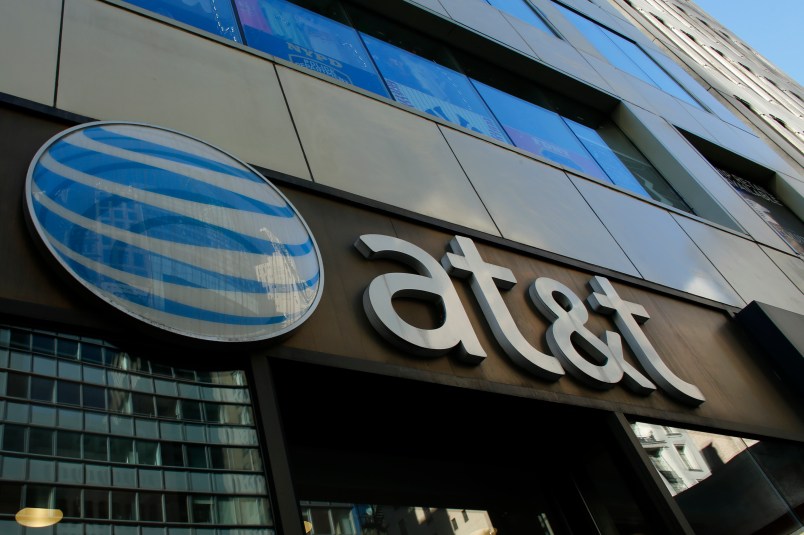WASHINGTON (AP) — The fate of the AT&T-Time Warner merger, a massive media deal opposed by the government that could shape how much consumers pay for streaming TV and movies, rests in the hands of a federal judge.
U.S. District Judge Richard Leon is expected to announce in court Tuesday his decision in the biggest antitrust trial in years. The Trump Justice Department sued to block the $85 billion merger, arguing that it would hurt competition in pay TV and cost consumers hundreds of millions of dollars more to stream TV and movies.
If Leon approves the deal, the phone and pay-TV giant would be allowed to absorb the owner of CNN, HBO, the Warner Bros. movie studio, “Game of Thrones,” coveted sports programming and other “must-see” shows.
Another possible outcome would be for the judge to approve the merger — but on condition that AT&T not acquire certain Time Warner assets, such as Turner Broadcasting’s CNN, or sell off its valuable DirecTV, or accept curbs on how it deploys Time Warner programming.
Or Leon could reject the merger outright, accepting the government’s contention that it would hurt pay-TV consumers and competition in the industry.
The mega-merger is a high-stakes bet by AT&T Inc. on the synergy between companies that produce news and entertainment and those that funnel it to consumers — who spend more time watching video on phones and tablets and less time on traditional live TV on a big screen.
Approval of the combination would be a stinging defeat for the Justice Department, which could move to appeal Leon’s ruling. The proposed merger was so big and consequential that it drew the government’s first lawsuit in decades to block a merger of two companies that don’t directly compete. First floated in October 2016, the deal also brought fire from then-candidate Donald Trump, who promised to kill it “because it’s too much concentration of power in the hands of too few.”
Dallas-based AT&T’s power flows from its position as a wireless, broadband and satellite behemoth that also became the country’s biggest pay-TV provider with its purchase of DirecTV. It claims about 25 million of the 90 million or so U.S. households that are pay-TV customers.
Leon’s ruling could shape the government’s future competition policy. Approval could open the floodgates to deal making in the fast-changing entertainment and video-content worlds. Major cable, satellite and phone companies are bulking up with purchases of entertainment conglomerates to compete against rivals born on the internet, like Amazon and Google.
Rejection likely would chill future combinations. Pressing in the wings are potential big-billions deals involving 21st Century Fox and Disney, Verizon and CBS, T-Mobile and Sprint. Comcast and Verizon are also jockeying for position in the new landscape.
As president, Trump has called the merger “not good for the country” and said he believed it would push pay-TV prices higher. Looming in the background of the deal has been Trump’s long-running feud with Time Warner’s CNN, which he has often derided as “failing” and a purveyor of “fake news.”
The six-week trial featured a parade of expert witnesses as attorneys for the opposing sides took Leon on a journey through the twisty dynamics of the media and entertainment landscape. The companies’ CEOs, AT&T’s Randall Stephenson and Jeffrey Bewkes of Time Warner Inc., testified in support of the deal.
The government argued that AT&T would gain outsize market power, jacking up the prices it charges cable providers to carry networks in the Time Warner stable. Post-merger, AT&T rivals like Charter Communications and Cox, which currently pay Time Warner for its channels, would suddenly also become AT&T’s customers. The government’s star witness was Carl Shapiro, an economist at the University of California, who used an economic model to predict that consumer cable bills could rise $500 million annually in aggregate by 2021.
The companies’ main economist, Dennis Carlton from the University of Chicago, refuted Shapiro’s model as overly complicated and rejected his conclusions. The government failed to prove that the merger would dampen competition and innovation and raise prices for pay TV, said Daniel Petrocelli, the companies’ lead attorney in defending the merger. In fact, he suggested, consumers could end up paying less after a merger — maybe even $500 million less annually.
AT&T has said it needs to buy Time Warner to compete with the likes of Amazon, Netflix and Google in the shape-shifting streaming-TV environment. The combination would push technology forward and give consumers more choices, AT&T has promised.







Let’s play the Judge game. This guy was appointed by GW Bush. The rules of the Judge game say he rules the best way for the GOP. My bet, he allows the merger on “free market” boilerplate but denies the buy of CNN ( which is exactly what Trump wants ) giving the big Corp what it wants and the GOP as well. Let’s see.
the deal also brought fire from then-candidate Donald Trump, who promised to kill it “because it’s too much concentration of power in the hands of too few.”
Kinda like the modern day Oval Trailer…
lol